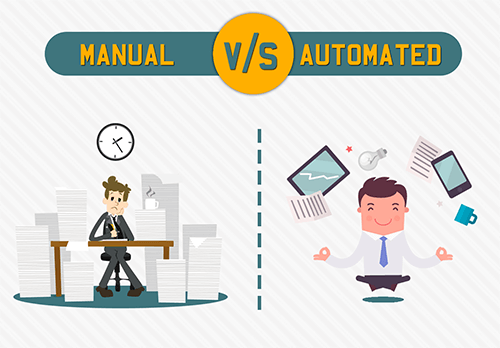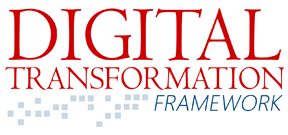Keep your business up and running all night long (without coffee).
It’s true. While there are many benefits to automation, availability is a pretty big one. It can keep you one step ahead of your competition. As a human, we can only work so many hours in a day before sleep is required. Automated systems can run day and night, every day of the year. Availability walks hand-in-in hand with productivity. More hours worked equals higher output. Don’t we all want a way to make money while we sleep?
Automation is defined as using technology to perform business functions with minimal human intervention. It is one of the twelve tenets of our digital transformation framework and can work well when partnered with another tenet Integration, which is using technology to share data or processes between systems or organizations to increase efficiency. For more information on Integration, click here for the article “Replacing Manual Processes with Integrated Systems” written by my colleague Jill Epperson.

Automated systems are an important tool utilized by most forward-thinking businesses. Most definitely, their use will rise as technologies continue to advance. But why is automation so important? The answers are quite simple. The principal benefits are cost reduction, productivity, availability, reliability, and performance. Simply put, businesses will run easier and simpler by having automated systems perform operational and repetitive tasks. The businesses that lead the way in their industry will have incorporated automation as part of their team.
The old saying “Time is Money” still rings true. He who does it fastest, without losing accuracy, wins. Businesses can save time and money by delegating manual tasks to the software. Without question, the computer processor outperforms the human brain in terms of speed and accuracy. Remember, a human brain is fallible, but a computer, programmed correctly, is not. Which do you want to perform your calculations? Keeping track of your bank balance? Not only will the software perform more efficiently, but this frees team members to perform other tasks they are uniquely positioned to perform. Utilizing technology will propel your business ahead of your competitors.
Just one example of a business utilizing automation is banking institutions. For this customer-driven industry, if finance employees are focused on operational activities, valuable activities such as innovation, customer relationship-building, and analysis are negatively impacted. The most successful banking and finance companies create a workflow that promotes better customer experiences by effectively managing handoffs between employees and machines. Furthermore, to take advantage of the benefits of automation, banks are now redesigning processes to be optimized for machines, rather than for humans.
One topic that must not be overlooked is computer security. Automation, while it has its benefits, opens the door to hacking attempts. This vulnerability must be addressed with up-to-date security measures. The computer functions and sensitive data housed on the system require protection from malicious cyber-attacks. Do not miss this critical aspect of automation.
In summary, turning over repetitive tasks and calculations to automated systems gives humans the time to do what we do best – create and innovate. Many companies can find it hard to relinquish tasks from human hands to automated systems. It’s time to let go. In examining your daily business tasks, begin to shift your mindset and ask “Why would I not automate this?”. Think automation, and watch your business soar to new heights.
Keller Schroeder’s Digital Transformation Framework includes tenets to help you identify, prioritize, execute, and learn from transformational initiatives to better prepare you for the next disruption – whatever it may be! Click here to download your complimentary copy.
Think Digital. Embrace Clarity. Increase Advantage.
Written By:
Kim Lemond
Applications Consultant
Keller Schroeder





